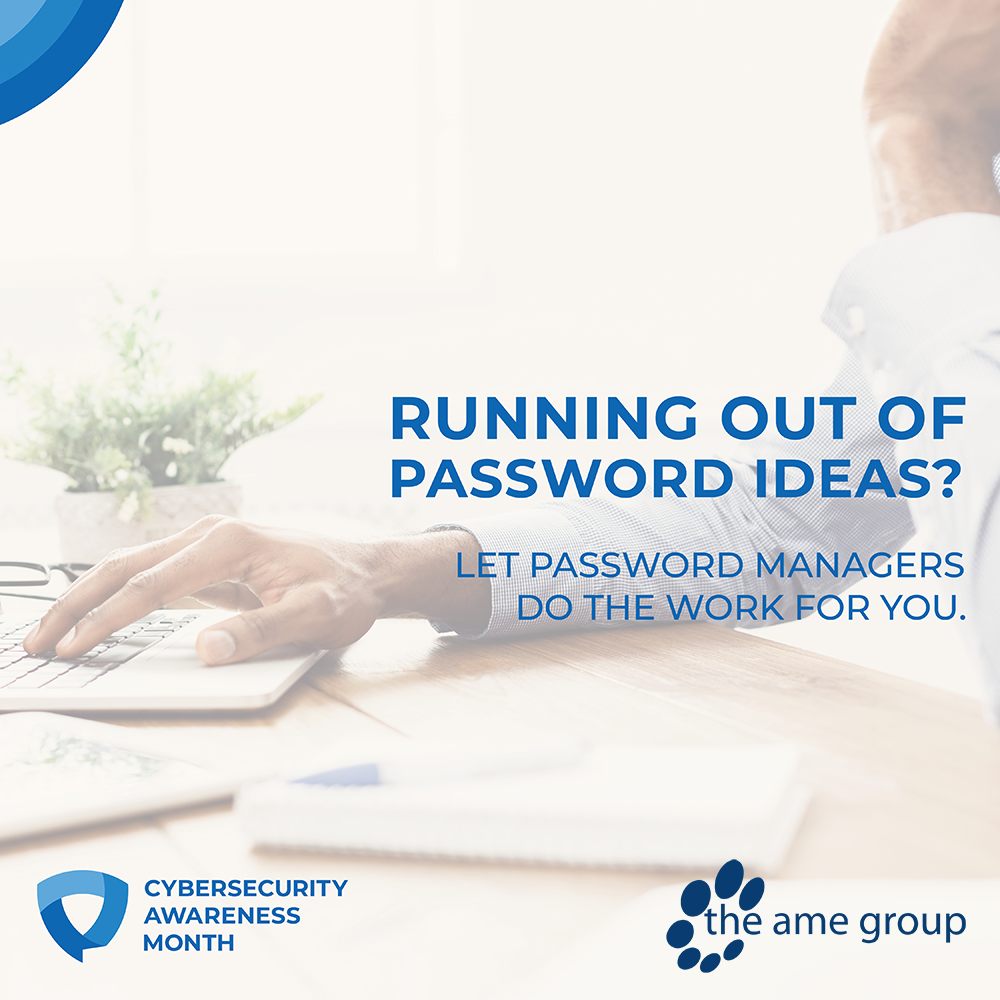
Today, nearly every adult and child has at least one password. Most have nearly 100! The statistics around password management are rather grim. The most commonly strategy is writing them down in a notebook (31%). Remembering passwords is also a popular technique reported by 26% of the participants. (NCA). The most startling stat is only 45% of adults would change a password after a breach. (Google). The reason is it is hard for people to create and manage their passwords using only their memory. It’s time to change your strategy and use a Password Manager.
A Password Manager is an application that securely stores credentials used to login to websites and apps. It generates random passwords that are long and complex and far more secure than what people create themselves. It doesn’t matter if you cannot remember the password because the application stores it and enters the login and password for you.
People create weak passwords and reuse them. Those weak passwords are already known by hackers or can be easily breached by computer programs. This puts all your accounts at risk – including important ones like banking and work accounts.
Let’s revisit some statistics for this one.
81% of the total number of breaches leveraged stolen or weak passwords. (LastPass)
61% of employees use the same passwords for multiple platforms. (LastPass)
Password Managers lets you manage hundreds of unique and strong passwords for your online accounts. It also:
SAVES TIME. You don’t have to reset your password as often because you forgot it.
PROTECT YOUR IDENTITY.
Works across all your devices and systems.
Notifies you of potential phishing or spam websites.
Alerts you to weak or breached passwords.
It is similar in that it stores your login information and automatically fills it in. Browsers may be storing the logins on your device, or they may be in the cloud (for syncing between devices). You are usually always logged into your browser, so your passwords are always available. Your password to log into your browser may not be strong since we really don’t think about a browser like we do our bank accounts. Also, what if you use more than 1 browser? Your passwords will not be available to use. This is also a limitation of the Apple Keychain – it’s only useful on Apple Devices.
Bottom line is browsers are NOT as secure as Password Managers.
A Password Manager is far safer than using browsers, notebooks, storing passwords on computers or creating your own passwords. Feeling like they are unsafe to use is very misguided.
There are a couple things you should do when setting up your Password Manager. 

Password Managers encrypt all data stored in them. This means, if they are stolen, they cannot be decoded easily. The only access to the passwords in your manager is by using the ONE password only you know.
Password Managers does not know your main password. It is not kept on the system’s servers, so only YOU know it. This means you must remember just 1 good password.
There are many different free or paid password managers available for personal or business use.
Some examples include:
1Password
LastPass
Keeper
Bitwarden
NordPass
Dashlane
Consumer Reports
PC Mag
CNET
Tom’s Guide
Global Cyber Alliance: passwordmanager.com
619 Main St
Vincennes, IN 47591
812.726.4500